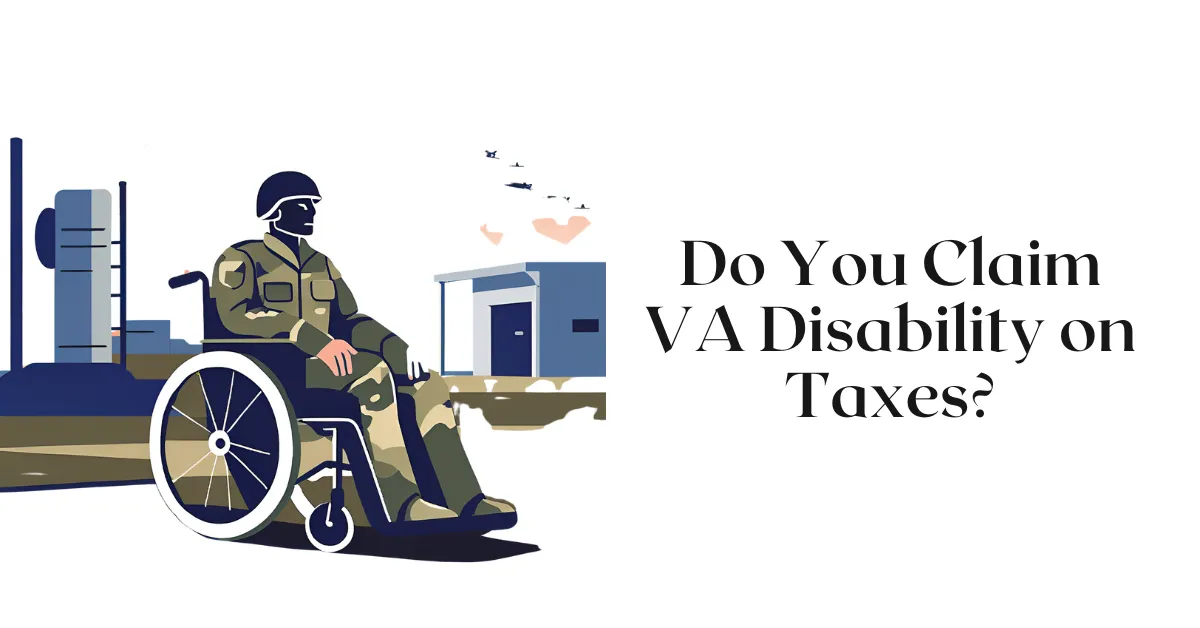Understanding how VA disability benefits affect your taxes is crucial. You might wonder whether you need to report these payments as income or if they are exempt. The good news is that VA disability benefits are generally tax-free.
As tax season approaches, many veterans worry about whether they should include their disability compensation when filing. The IRS has clear guidelines on this, and knowing them can save you from unnecessary stress.
However, while VA disability benefits are tax-exempt, not all military-related payments fall under the same rules. Some forms of compensation may still have tax implications, and it’s essential to be aware of the differences.
This guide will help you understand how VA disability benefits are treated for tax purposes and which types of compensation remain tax-free. We also covered any special circumstances that might affect your filing. By the end, you’ll have the knowledge to file your taxes with confidence.
Are VA Disability Benefits Taxable?
One of the biggest tax questions veterans have is whether VA disability benefits count as taxable income. The answer is simple—VA disability compensation is not subject to federal income tax.
This means you don’t need to report it on your tax return, which won’t increase your taxable income. The IRS considers these benefits a form of compensation for service-related disabilities, not earned income.
The same applies to Dependency and Indemnity Compensation (DIC), which is paid to surviving spouses and dependents of veterans. Just like standard VA disability compensation, DIC is also tax-exempt.
However, be cautious when dealing with other forms of military-related payments. For example, military retirement pay is taxable, but if you waive a portion of it to receive VA disability benefits, that waived amount becomes tax-free.
If you receive-
- Combat-Related Special Compensation (CRSC) or
- Concurrent Retirement and Disability Pay (CRDP)
-the tax rules can be different.
It’s always best to check with a tax professional if you’re unsure how your specific benefits apply.
Types of VA Disability Benefits Exempt from Taxes
Veterans receive various types of disability-related payments, many of which are tax-free. If you’re unsure whether your benefits are taxable, here’s a breakdown of the main ones that remain entirely exempt.
The primary non-taxable benefit is VA disability compensation. This includes payments made to veterans for service-connected disabilities, whether physical or mental. No matter the percentage of disability, these payments are always tax-free.
DIC is another tax-exempt benefit. This is a monthly payment to surviving spouses, children, or parents of veterans who passed away due to service-connected conditions. Since it serves as a financial support measure, it’s not subject to taxation.
Veterans may also receive Specially Adapted Housing (SAH) grants or automobile grants to accommodate disabilities. These are not considered taxable income because they help veterans modify their homes or vehicles to improve their quality of life.
Additionally, VA-provided education and training benefits, such as those under the GI Bill, are not taxed. This includes money for tuition, housing allowances, and other educational support.
Exceptions and Special Considerations
While VA disability benefits are generally tax-free, there are a few exceptional circumstances to be aware of. Understanding these exceptions can help you avoid potential tax mistakes.
If you receive both military retirement pay and VA disability compensation, the taxability of your retirement pay depends on whether you’ve waived a portion of it for disability benefits. The waived amount remains tax-free, but the rest is still taxable.
Some veterans may receive retroactive disability payments due to an appeal or rating adjustment.
If you previously paid taxes on a portion of military retirement pay that was later converted to disability compensation, you may be eligible for a refund.
Additionally, veterans who receive CRSC should know that while this benefit is tax-exempt, CRDP is taxable. Remember these distinctions to ensure you’re not overpaying or underreporting on your tax return.
State Tax Implications
While VA disability benefits are exempt from federal taxes, state tax laws vary. Some states offer additional tax exemptions for veterans, while others may have different rules regarding military retirement pay.
- Many states provide property tax exemptions for disabled veterans.
- The eligibility criteria often depend on your disability rating, with full exemptions available for those with a 100% rating.
- Some states also extend these exemptions to surviving spouses.
- Additionally, some states do not tax military retirement pay at all, while others partially exempt it.
If you have a mix of taxable and non-taxable income from military service, checking your state’s regulations can help maximize your benefits.
To ensure you’re taking advantage of every available exemption, it’s a good idea to visit your state’s tax website or consult a local tax professional.
Additional Tax Benefits and Credits for Disabled Veterans
Beyond tax-exempt disability benefits, additional tax breaks are available to veterans with disabilities. These benefits can reduce your overall tax burden and increase your financial security.
- The Earned Income Tax Credit (EITC) may be available if you have a lower income, even if part of your compensation is non-taxable.
- Additionally, some states offer special income tax exemptions for veterans, which can provide extra relief.
- If you’ve made home modifications due to a service-connected disability, certain expenses might be deductible.
Conclusion
Understanding how VA disability benefits impact your taxes can help you avoid costly mistakes and take advantage of valuable exemptions. Most benefits remain tax-free, but exceptions exist.
Checking both federal and state rules ensures you get the most out of your compensation while avoiding unnecessary tax payments. Stay informed and file confidently.
